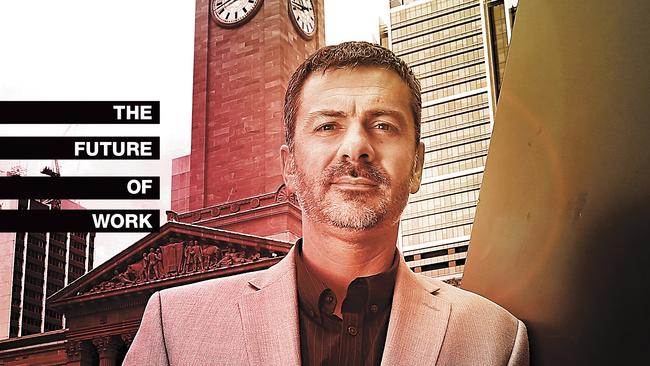Adrian Turner, CEO, Data61, CSIRO
The CSIRO’s data innovation expert says entrepreneurial leaders and the will to showcase success are part of a necessary cultural shift

Australian educators are asking big questions about how schools need to adapt to educate the next generation. The Association of Independent Schools of New South Wales has commissioned a report titled “CEO Perspectives: The Future of Schooling in Australia”. Produced in partnership with Knowledge Society, the project involves interviews with leaders about their priorities and ideas for change. The Deal presents some edited extracts.
Adrian Turner, CEO, Data61, CSIRO
What should schools and education systems be thinking about?
Data61 has a partnership with 30 of Australia’s universities and we have a third of Australia’s ICT PhDs under scholarship. We also work through the CSIRO school program and the Teach the Teacher programs with schools to help bring new capability and thinking to the curriculum and to teachers.
It’s an exciting time but it’s a disruptive time. We are seeing the convergence of material sciences, biology and ICT in what some are calling the Fourth Industrial Revolution: it’s on a par with the Industrial Revolution, where we saw 95 per cent of the world move from agriculture-based industry to industrial industry. That required a whole new set of skills, and we are going to need to have our students develop a whole new set of skills also.
If you think about the attributes of the economy, if you think about attributes of firms that succeeded in the last era, they are very different from those that will succeed in this era. It’s a different set of skills. It’s resiliency around change; it’s the ability to question things, so curiosity is paramount. It’s flexibility and a recognition that people will need to learn and re-learn throughout their career.
What are the attributes of people who perform best in your industry?
They are good at multiple things. There’s a creative and artistic side to a lot of the people who perform really well in data science and computer science, and they could be artists, musicians. One of our senior team members participates in plays – he’s an actor. He’s in our business development organisation and learns improvisation skills he can bring to a business context. And the machine learning, which is all about maths and stats – the best machine learners are actually philosophers, because they can think in a systems way and think about the implications of the mathematics they’re doing. So how do you acquire that? Well, it comes back to the network, it comes back to reading and being curious, this value of mastery, to want to continue to learn and consume knowledge around new areas, and the unexpected connections between these disciplines really create magic.
How can teachers prepare students for the future?
We need strong entrepreneurial leaders and we need a national mindset to really showcase success. That’s as much a national/cultural shift as it is a company shift and a university or tertiary education shift to encourage people to follow the path of entrepreneurship. It also means thinking about career risk differently. People perceive entrepreneurship as risk-taking but it’s not – entrepreneurs are calculated risk-takers. It’s lower risk to know and acquire the skills to be able to go out and create a venture than it is to rely on having to work for somebody else where those industries are going through change themselves. There’s no guarantee of a life-long job, nor should there be, versus acquiring new skills through a career.
Where are the weak spots in our education system?
I’ll share an anecdote. We have an annual conference and we get 1200 people. I said, I’d like the kids on stage, telling an audience full of industry leaders and political leaders what they want from us. They told us they really wanted to study, and they had to do that in clubs because the curriculum was really constrained – there wasn’t room. And when we pushed them we learned that it was also a function of some of the teachers not being comfortable with some of the subject matter, but also the way [students] are measured as well. This meant it was difficult for them to deviate from the standard curriculum and the modes of teaching.
The second thing they said was they picked their subjects not because of what they were interested in necessarily but based on what would maximise the ATAR result. They’re smart: they were gaming the system to get the outcome and the result they thought they were being rewarded for getting.
What will the education system of the future look like?
If we were to start again today and redesign our education system it would look completely different. We’d be doing psychographic testing and we’d be having a conversation with the individual and we’d be saying: what interests you most? How do you think, how do you problem-solve? We’d be equipping them with a baseline set of skills around resilience, financial literacy, communications skills. We’d probably have an artificial intelligence-based career concierge that sits on their shoulder throughout their entire career, that also has a point of view of where industry is headed and what new skills are going to be required in particular jobs.
-
Fact sources: How Young People Are Faring Report Card, FYA, 2015; New Work Order, FYA, 2015; Hanushek et al, Education and economic growth, 2008; Knowledge Society; Pilcher and Tori, Crunching the numbers, Mitchell Institute, 2018; New Work Smarts, FYA, 2017.













